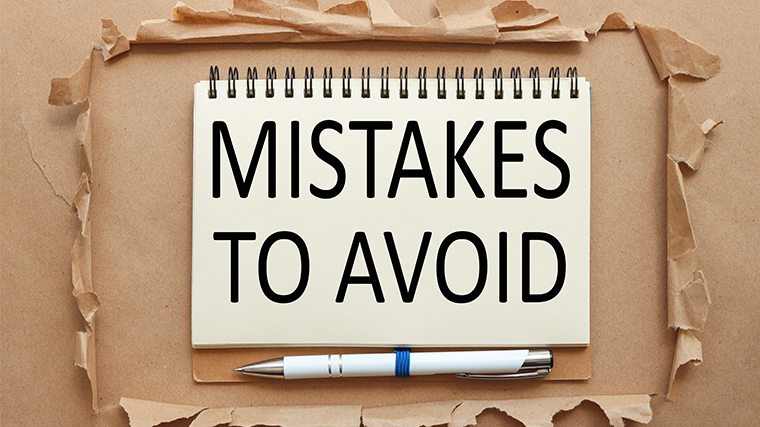Buying insurance is one of the most important steps you can take to protect yourself and your loved ones financially. However, many people rush into buying a policy without understanding what they truly need, or what they're getting into. This often leads to unnecessary expenses, insufficient coverage, or outright denial of claims.
To help you make smarter decisions, we’ve listed the top mistakes to avoid when buying insurance, whether it's health, life, motor, or any other type.
.jpg)
1. Not Understanding Your Needs
The mistake: Many people buy insurance based on what their friends or relatives have, without analysing their own lifestyle, responsibilities, and financial goals.
Solution:
Assess your current income, liabilities (like loans), dependents, and future expenses.
Decide whether you need term insurance, health insurance, or a combo plan.
Choose the right coverage amount, not just the cheapest premium.
2. Focusing Only on Premiums
The mistake: Choosing the policy with the lowest premium is tempting, but it often means compromising on coverage, features, or claim support.
Example: A cheap health insurance plan might exclude common diseases or have high co-payment clauses.
Solution:
Compare benefits, exclusions, and limits, not just the price.
Consider overall value instead of cost alone.
3. Ignoring the Policy Exclusions
The mistake: Skipping the fine print often leads to nasty surprises during claim time.
Exclusions are conditions or events not covered by your policy.
Solution:
Read the policy document thoroughly.
Ask your agent or insurer to clearly explain what is not covered, especially for health and life insurance.
Be aware of waiting periods, disease-specific clauses, or limits on room rent in hospitals.
4. Not Disclosing All Facts Honestly
The mistake: Some buyers hide health issues, smoking habits, or income details to get a lower premium.
Result: Claims can be rejected due to “non-disclosure.”
Solution:
Always provide honest and complete information during the application.
Remember: Insurers verify data during claim time, not when issuing the policy.
5. Delaying Purchase of Insurance
The mistake: Postponing insurance until you get married, have kids, or fall ill.
Problem:
Premiums get more expensive with age.
Health issues may lead to loading (extra charges) or denial of coverage.
Accidents or illness can occur at any time.
Solution:
Buy insurance as early as possible, especially in your 20s or 30s.
Lock in low premiums and long-term coverage early.
6. Not Reviewing the Claim Settlement Ratio
The mistake: People often buy from companies they’ve heard of, but never check their claim settlement record.
Why it matters: Some insurers reject more claims than others, causing financial stress at the worst time.
Solution:
Check IRDAI’s annual report for claim settlement ratio (CSR).
Look for insurers with high CSR (above 95%) and good customer reviews.
7. Choosing the Wrong Policy Term
The mistake: Choosing very short-term plans to save on premiums.
Example: Buying a 10-year term insurance policy at age 30, when you need coverage till at least 60.
Solution:
For life insurance, your coverage should last until retirement or until your children become financially independent.
For health insurance, choose lifelong renewable policies.
8. Forgetting to Nominate or Update Nominees
The mistake: Not filling in nominee details or forgetting to update them after marriage or other life changes.
Risk: Claim settlement can get delayed or disputed if the nominee is outdated or missing.
Solution:
Always fill in the nominee details while buying.
Update the nominee when there's a major life change.
9. Not Comparing Policies
The mistake: Buying the first policy you hear about or from just one agent.
Problem: You may miss out on better coverage, better premiums, or modern digital services.
Solution:
Use trusted comparison websites.
Look at 3–4 insurers, and compare policy benefits, customer service, and reviews.
10. Skipping Annual Review
The mistake: Forgetting to review your insurance needs each year.
Example: You might have increased liabilities, more dependents, or changes in income that require more coverage.
Solution:
Review policies annually.
Upgrade coverage, add riders, or buy top-ups as needed.
Conclusion
Insurance is not just a financial product—it’s a promise of security when life takes unexpected turns. By avoiding these common mistakes, you ensure that your policy truly works for you when you need it most.
Whether you're buying life insurance, health insurance, or car insurance, be informed, ask the right questions, and never rush the decision.
Disclaimer: This article is for informational purposes only and does not constitute professional advice. Read our full Disclaimer.












Recent Comments
No comments yet.